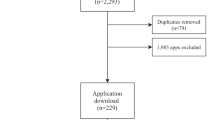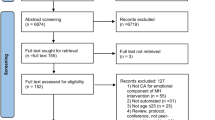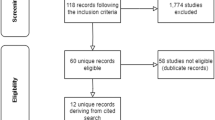Abstract
Artificial intelligence (AI)-enabled chatbots are increasingly being used to help people manage their mental health. Chatbots for mental health and particularly ‘wellness’ applications currently exist in a regulatory ‘gray area’. Indeed, most generative AI-powered wellness apps will not be reviewed by health regulators. However, recent findings suggest that users of these apps sometimes use them to share mental health problems and even to seek support during crises, and that the apps sometimes respond in a manner that increases the risk of harm to the user, a challenge that the current US regulatory structure is not well equipped to address. In this Perspective, we discuss the regulatory landscape and potential health risks of AI-enabled wellness apps. Although we focus on the United States, there are similar challenges for regulators across the globe. We discuss the problems that arise when AI-based wellness apps cross into medical territory and the implications for app developers and regulatory bodies, and we outline outstanding priorities for the field.
This is a preview of subscription content, access via your institution
Access options
Access Nature and 54 other Nature Portfolio journals
Get Nature+, our best-value online-access subscription
$29.99 / 30 days
cancel any time
Subscribe to this journal
Receive 12 print issues and online access
$209.00 per year
only $17.42 per issue
Buy this article
- Purchase on Springer Link
- Instant access to full article PDF
Prices may be subject to local taxes which are calculated during checkout


Similar content being viewed by others
References
Catsaros, O. Generative AI to become a $1.3 trillion market by 2032, research finds. Bloomberg https://www.bloomberg.com/company/press/generative-ai-to-become-a-1-3-trillion-market-by-2032-research-finds/ (1 June 2023).
Kanagaraj, M. Here’s why mental healthcare is so unaffordable & how COVID-19 might help change this. Harvard Medical School Primary Care Review https://info.primarycare.hms.harvard.edu/review/mental-health-unaffordable (2020).
Terlizzi, E. P. & Schiller, J. S. Mental health treatment among adults aged 18–44: United States, 2019–2021. National Center for Health Statistics https://www.cdc.gov/nchs/data/databriefs/db444.pdf (2022).
Lavingia, R., Jones, K. & Asghar-Ali, A. A. A systematic review of barriers faced by older adults in seeking and accessing mental health care. J. Psychiatr. Pract. 26, 367–382 (2020).
Barney, L. J., Griffiths, K. M., Jorm, A. F. & Christensen, H. Stigma about depression and its impact on help-seeking intentions. Aust. N. Z. J. Psychiatry 40, 51–54 (2006).
Kakuma, R. et al. Human resources for mental health care: current situation and strategies for action. Lancet 378, 1654–1663 (2011).
De Freitas, J. & Tempest Keller, N. Replika AI: monetizing a chatbot. Harvard Business School Case 523-016 (2022).
Sung, M. Blush, the AI lover from the same team as Replika, is more than just a sexbot. TechCrunch https://techcrunch.com/2023/06/07/blush-ai-dating-sim-replika-sexbot/ (7 June 2023).
US Food and Drug Administration. How to determine if your product is a medical device. FDA https://www.fda.gov/medical-devices/classify-your-medical-device/how-determine-if-your-product-medical-device (2022).
21 U.S.C. § 360c — Premarket Approval https://www.law.cornell.edu/uscode/text/21/360e# (2023).
Office of Product Evaluation and Quality Template. FDA Summary of Safety and Effectiveness Data template. FDA https://www.fda.gov/media/113810/download (2023).
Sherkow, J. S. & Aboy, M. The FDA de novo medical device pathway, patents and anticompetition. Nat. Biotechnol. 38, 1028–1029 (2020).
21 U.S.C. § 360c — Classification of Devices Intended for Human Use https://www.law.cornell.edu/uscode/text/21/360c (2023).
Simon, D. A., Shachar, C. & Cohen, I. G. Skating the line between general wellness products and regulated devices: strategies and implications. J. Law Biosci. 9, lsac015 (2022).
Center for Devices and Radiological Health, US Food and Drug Administration. General wellness: policy for low risk devices. FDA https://www.fda.gov/regulatory-information/search-fda-guidance-documents/general-wellness-policy-low-risk-devices (2019).
De Freitas, J., Agarwal, S., Schmitt, B. & Haslam, N. Psychological factors underlying attitudes toward AI tools. Nat. Hum. Behav. 7, 1845–1854 (2023).
Vaidyam, A. N., Wisniewski, H., Halamka, J. D., Kashavan, M. S. & Torous, J. B. Chatbots and conversational agents in mental health: a review of the psychiatric landscape. Can. J. Psychiatry 64, 456–464 (2019).
Abd-Alrazaq, A. A. et al. An overview of the features of chatbots in mental health: a scoping review. Int. J. Med. Inform. 132, 103978 (2019).
Abd-Alrazaq, A. A., Rababeh, A., Alajlani, M., Bewick, B. M. & Househ, M. Effectiveness and safety of using chatbots to improve mental health: systematic review and meta-analysis. J. Med. Internet Res. 22, e16021 (2020).
Sweeney, C. et al. Can chatbots help support a person’s mental health? Perceptions and views from mental healthcare professionals and experts. ACM Trans. Comput. Healthc. 2, 25 (2021).
Kretzschmar, K. et al. Can your phone be your therapist? Young people’s ethical perspectives on the use of fully automated conversational agents (chatbots) in mental health support. Biomed. Inform. Insights 11, 1178222619829083 (2019).
Boucher, E. M. et al. Artificially intelligent chatbots in digital mental health interventions: a review. Expert Rev. Med. Devices 18, 37–49 (2021).
Gould, C. E. et al. Veterans Affairs and the Department of Defense mental health apps: a systematic literature review. Psychol. Serv. 16, 196–207 (2019).
Bendig, E., Erb, B., Schulze-Thuesing, L. & Baumeister, H. The next generation: chatbots in clinical psychology and psychotherapy to foster mental health—a scoping review. Verhaltenstherapie 32, 64–76 (2019).
Johansson, R. et al. Tailored vs. standardized internet-based cognitive behavior therapy for depression and comorbid symptoms: a randomized controlled trial. PLoS ONE 7, e36905 (2012).
Norcross, J. C. & Wampold, B. E. What works for whom: tailoring psychotherapy to the person. J. Clin. Psychol. 67, 127–132 (2011).
Alkaissi, H. & McFarlane, S. I. Artificial hallucinations in ChatGPT: implications in scientific writing. Cureus 15, e35179 (2023).
Eysenbach, G. The role of ChatGPT, generative language models, and artificial intelligence in medical education: a conversation with ChatGPT and a call for papers. JMIR Med. Educ. 9, e46885 (2023).
Babic, B., Gerke, S., Evgeniou, T. & Cohen, I. G. Beware explanations from AI in health care. Science 373, 284–286 (2021).
De Freitas, J., Uğuralp, A. K., Uğuralp, Z.-O. U. & Puntoni, S. Chatbots and mental health: insights into the safety of generative AI. J. Consum. Psychol. 00, 1–11 (2023).
Walker, L. Belgian man dies by suicide following exchanges with chatbot. The Brussels Times https://www.brusselstimes.com/430098/belgian-man-commits-suicide-following-exchanges-with-chatgpt (28 March 2023).
Atillah, I. E. Man ends his life after an AI chatbot ‘encouraged’ him to sacrifice himself to stop climate change. euronews.next https://www.euronews.com/next/2023/03/31/man-ends-his-life-after-an-ai-chatbot-encouraged-him-to-sacrifice-himself-to-stop-climate- (31 March 2023).
Haupt, C. E. & Marks, M. AI-generated medical advice—GPT and beyond. J. Am. Med. Assoc. 329, 1349–1350 (2023).
Medtronic, Inc. v. Lohr, 518 U.S. 470 (1996).
Riegel v. Medtronic, Inc., 552 U.S. 312 (2008).
Opel, D. J., Kious, B. M. & Cohen, I. G. AI as a mental health therapist for adolescents. JAMA Pediatr. 177, 1253–1254 (2023).
Corker, E. et al. Experiences of discrimination among people using mental health services in England 2008–2011. Br. J. Psychiatry Suppl. 202, s58–s63 (2013).
Acknowledgements
I.G.C. was supported in part by a Novo Nordisk Foundation grant for a scientifically independent International Collaborative Bioscience Innovation & Law Programme (Inter-CeBIL Programme, grant no. NNF23SA0087056).
Author information
Authors and Affiliations
Corresponding author
Ethics declarations
Competing interests
I.G.C. serves on the bioethics advisory board of Illumina and on the bioethics council of Bayer and is an advisor to World Class Health. He was also compensated for speaking at events organized by Philips with the Washington Post and attending the Transformational Therapeutics Leadership Forum organized by Galen/Atlantica, and was retained as an expert in health privacy, reproductive technology and gender-affirming care lawsuits.
Peer review
Peer review information
Nature Medicine thanks Simon Goldberg and the other, anonymous, reviewer(s) for their contribution to the peer review of this work. Primary Handling Editor: Karen O’Leary, in collaboration with the Nature Medicine team.
Additional information
Publisher’s note Springer Nature remains neutral with regard to jurisdictional claims in published maps and institutional affiliations.
Rights and permissions
Springer Nature or its licensor (e.g. a society or other partner) holds exclusive rights to this article under a publishing agreement with the author(s) or other rightsholder(s); author self-archiving of the accepted manuscript version of this article is solely governed by the terms of such publishing agreement and applicable law.
About this article
Cite this article
De Freitas, J., Cohen, I.G. The health risks of generative AI-based wellness apps. Nat Med (2024). https://doi.org/10.1038/s41591-024-02943-6
Received:
Accepted:
Published:
DOI: https://doi.org/10.1038/s41591-024-02943-6



